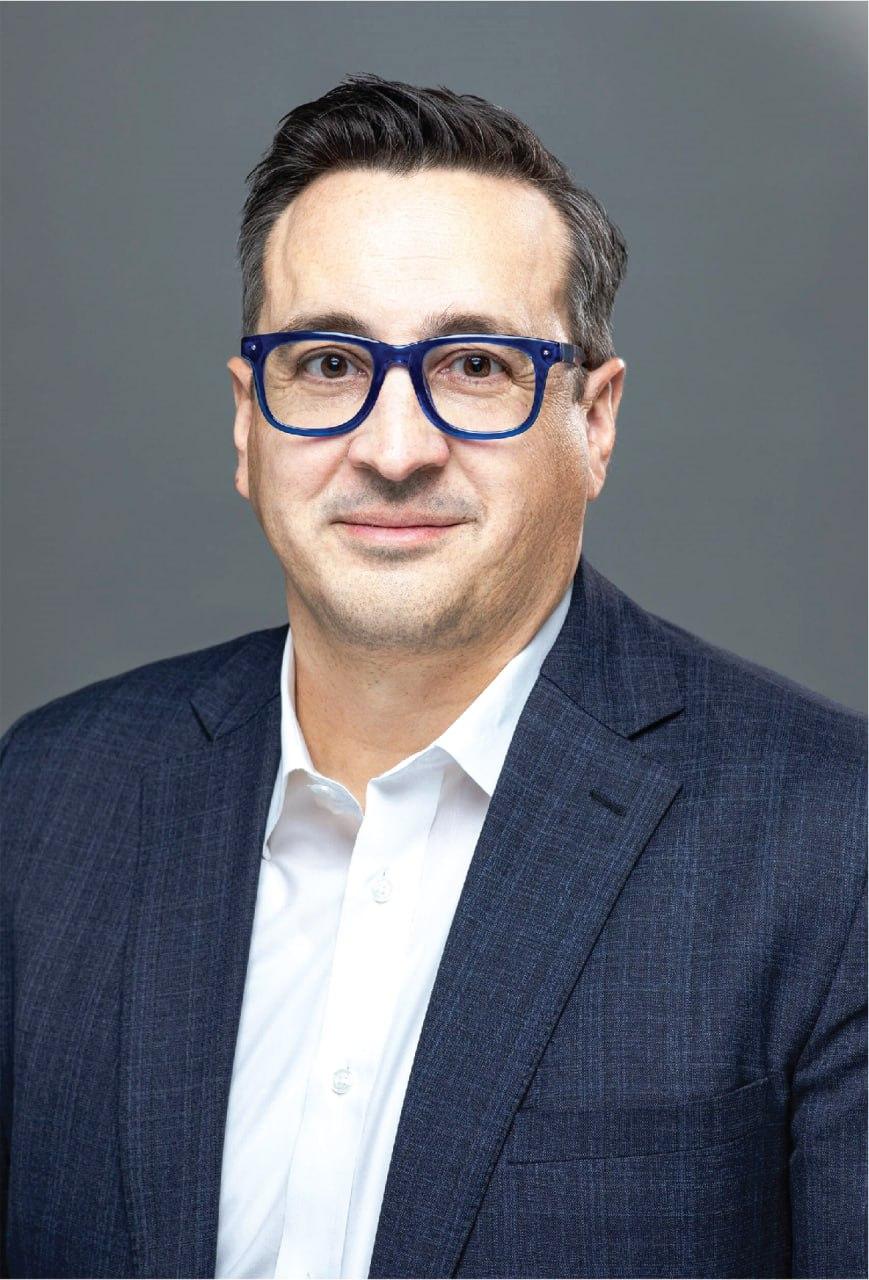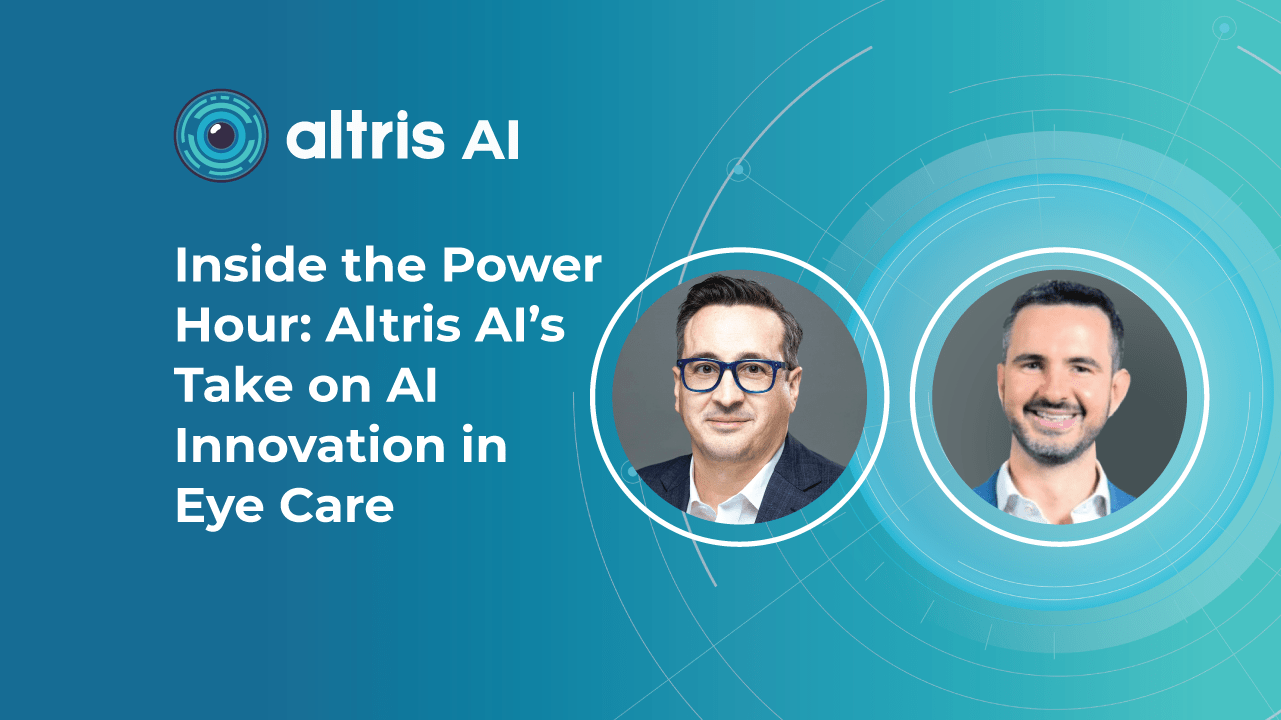
Inside the Power Hour: Altris AI’s Take on AI Innovation in Eye Care
Our Vice President of Business Development, Grant Schmid, took part in The Power Hour podcast to discuss how AI and automation are shaping the future of patient experience. We turned that conversation into an interview and pulled out the most compellinsubtle anatomical g insights on tech-enabled practice growth and innovation in eye care.
Eugene Shatsman: Can you start by introducing Altris AI and what problem you’re solving in eye care?
Grant Schmid: Altris AI was founded in 2017 in Chicago, with the University of Chicago as our first investor. But most of our team — and the heart of our development — is based in Ukraine.
We focus on AI for OCT analysis. Our goal is to provide decision support that helps identify over 70 different pathologies and biomarkers, no matter what OCT device a clinic uses. The idea is to speed up image interpretation, ensure nothing is missed, and support doctors in delivering top-quality care.
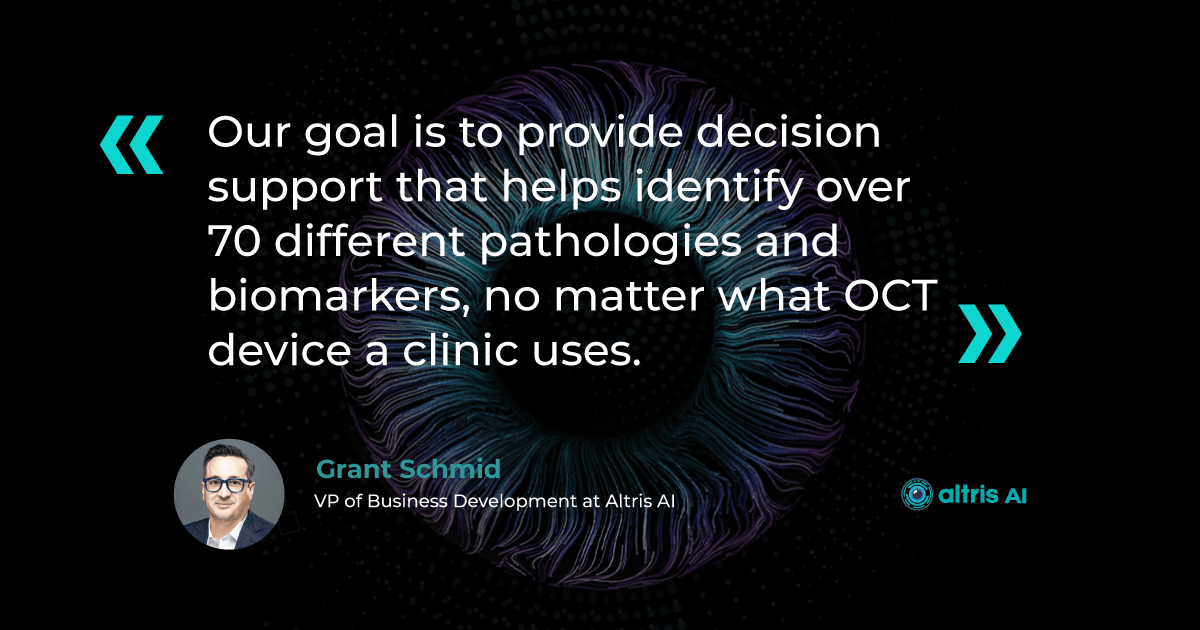
Eugene: What initially inspired the development of Altris AI?
Grant: Our co-founder is a retina specialist from Kyiv. She wanted a way to improve the referral process and increase the OCT knowledge of those referring patients to her. That’s how the idea of a clinical decision support platform was born.
We actually started with an educational OCT app that you can still download — many doctors come to our booth at trade shows not realizing that the app is also part of what we’ve built.
Eugene: What does a typical OCT workflow look like with and without Altris AI?
Grant: In many modern practices, every patient now gets an OCT. It’s used to screen for diseases like AMD, glaucoma, or diabetic retinopathy. But subtle anatomical differences can confuse even experienced clinicians.

Learn more about Altris AI’s Decision Support for OCT analysis
With Altris AI, the doctor gets an analysis almost immediately — color-coded overlays, pathology markers, optic disc assessments, all in one place. This speeds up the review process and supports clinical decision-making without disrupting workflow.
Eugene: What do you say to clinicians who say, “I already know how to read OCTs — why do I need AI?”
Grant: Many doctors are confident in interpreting OCTs, and that’s great. But the value isn’t just in identifying disease — it’s in validation and patient education.
We’re not here to replace what doctors do. Altris AI validates what you already know and makes it easier to communicate with patients. We highlight what might be missed, and we provide visual tools that help explain findings clearly — which leads to better patient understanding and trust.
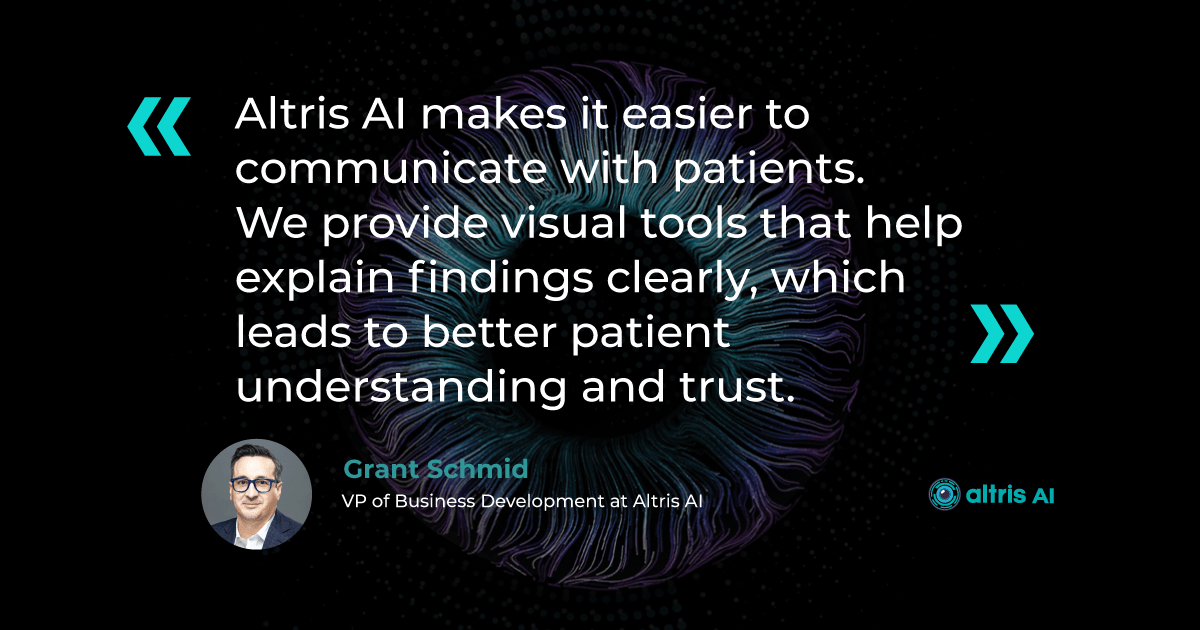
Eugene: Can you give an example of how this helps patient education?
Grant: Absolutely. Let’s take glaucoma. Many patients on drops don’t feel or see any change, so they think, “Why bother?” But if you can show them a progression or show that things are stable, it becomes real to them.
We launched an Optic Disc Analysis feature that lets you compare up to eight past visits side-by-side. So when a patient asks, “Is this working?” you can say, “Yes, here’s the proof.” That drives adherence and builds trust.
Eugene: Are practices today ready to embrace AI-based tools? Or are they still cautious?
Grant: There’s a lot of curiosity, a lot of interest. Some are still figuring out how to implement AI in a way that makes sense for them.
But AI is everywhere now — whether it’s in search engines, smartphones, or how we shop. Patients expect that kind of intelligence in their healthcare, too. In fact, a 67-year-old tugboat captain with AMD once called me asking about our software and offered to pay for his doctor’s subscription. That tells you how fast expectations are changing.
Eugene: Can AI actually improve the patient experience beyond just diagnosis?
Grant: Absolutely. Patients want to understand what’s happening with their health. When you can show them their scan results with overlays and simple visuals, they feel included in the process.
It’s not just about detecting disease, it’s about building trust. Clear visual communication boosts confidence, reduces anxiety, and increases compliance.

Learn more about Altris AI’s Decision Support for OCT analysis
Eugene: Some fear AI will replace clinicians. What’s your perspective on that?
Grant: That’s one of the biggest myths out there. AI won’t replace clinicians — it enhances what they do.
We’re not cleared to diagnose. We’re a decision-support tool. Doctors still make the final decision, but we give them more data, faster and more clearly. Human clinical judgment is still irreplaceable — we just help sharpen it.
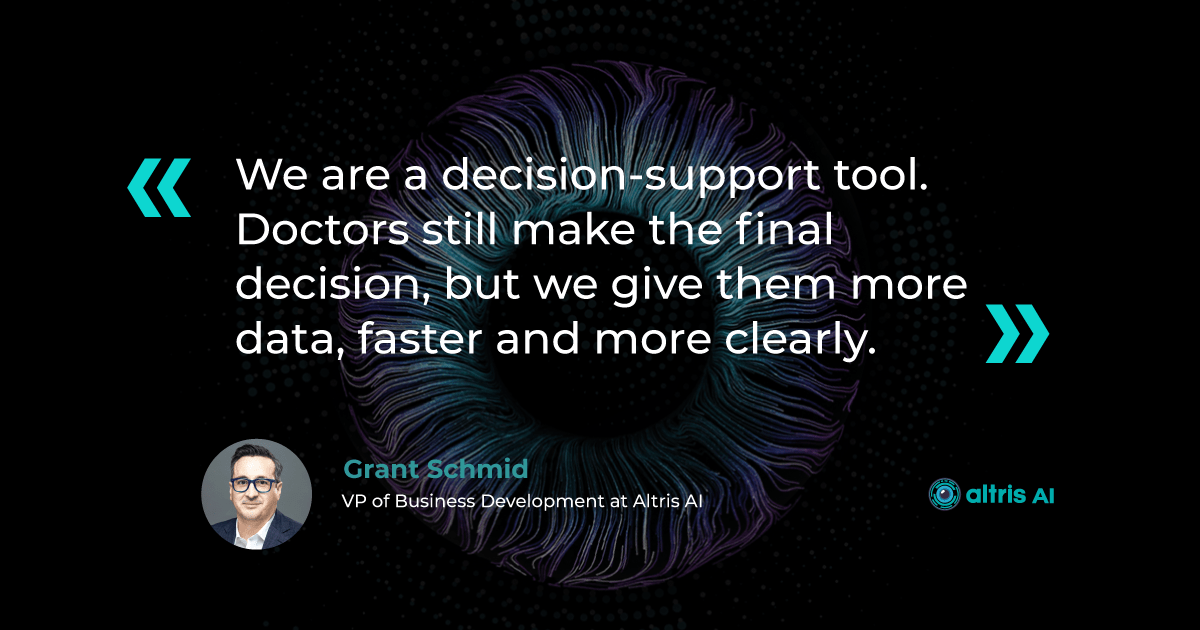
Eugene: What barriers are you seeing when introducing Altris AI to new practices?
Grant: The main one is comfort — many doctors feel confident reading OCTs and don’t immediately see the need.
The other is simply awareness. We’re a fast-growing startup, but many still don’t know about us. That’s why opportunities like this podcast are important.
In terms of logistics, there’s no barrier. Altris AI is web-based, nothing to install, and takes just 20 minutes to learn. We’re designed to be plug-and-play.
Eugene: If a practice wants to engage patients more using AI in eye care, how should they approach it?
Grant: One great idea is to run a recall campaign for patients who haven’t had an OCT in the last 6 or 12 months. Something like, “We now use AI to enhance your OCT scan — come see how it works.”
AI is a differentiator. It shows your clinic is modern, patient-focused, and using the best available tools.
Eugene: What do you think the optometry practice of 2028 will look like?
Grant: I think you’ll see AI systems talking to each other. Imagine our platform detecting something on a scan and automatically triggering a patient reminder or a suggested follow-up.
There will be less manual work and more focus on human care. The doctor will be able to walk in and focus completely on the patient — the AI will handle the background tasks like charting or longitudinal comparisons.
Ultimately, better care, less burnout.
Eugene: What’s one myth you’d like to bust about AI in optometry?
Grant: That AI will replace people. It won’t. What it does is make you more effective. You’ll have sharper insights, clearer visuals, and faster decision-making — all without replacing your clinical experience.
Eugene: And finally, how can practices get started with Altris AI?
Grant: Just go to altris.ai or connect with us on LinkedIn. We offer live demos and can use your real OCT scans to show exactly how it works.
There’s no software to install, no major investment, and we operate on a subscription basis — so there’s no long-term risk. If you’re curious, reach out. We’d love to show you what’s possible.
Watch the complete Power Hour podcast episode below for more insights on AI, automation, and innovation in eye care:
